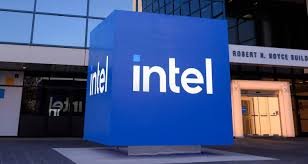Intel’s Missed Opportunity with OpenAI
Around seven years ago, Intel had a chance to invest in OpenAI, then a nascent non-profit focused on generative artificial intelligence. Discussions between the two companies included Intel potentially acquiring a 15% stake for $1 billion and an additional stake if they produced hardware for OpenAI at cost. However, then-CEO Bob Swan didn’t believe generative AI models would be market-ready soon, leading to Intel passing on the investment.
Strategic Missteps and Market Impact
Intel’s decision has become one of several strategic missteps that have caused the company to struggle in the AI era. OpenAI, now valued at around $80 billion, launched the groundbreaking ChatGPT in 2022. Meanwhile, Intel has faced declining stock prices and market valuation, failing to produce a blockbuster AI chip product.
Current AI Efforts and Market Position
While Intel is developing its third-generation Gaudi AI chip and the Falcon Shores AI chip for late 2025, it remains behind industry giants like Nvidia and AMD. Nvidia, which shifted from gaming to AI chips, now dominates the market with its GPUs, crucial for training and operating large AI systems.
Nervana and Habana Acquisitions
Intel’s past attempts to enter the AI chip market included acquiring Nervana Systems in 2016 and Habana Labs in 2019 for $2 billion. Despite these efforts, Intel has not matched Nvidia’s success. Intel’s data center business, encompassing its AI chips, is expected to generate $13.89 billion in sales this year, significantly less than Nvidia’s projected $105.9 billion.
Future Prospects
Intel’s spokesperson emphasized the company’s ongoing innovation and product pipeline, aiming for a greater share of the AI market. However, the missed investment in OpenAI remains a stark reminder of the strategic opportunities Intel has overlooked in the rapidly evolving AI landscape.











